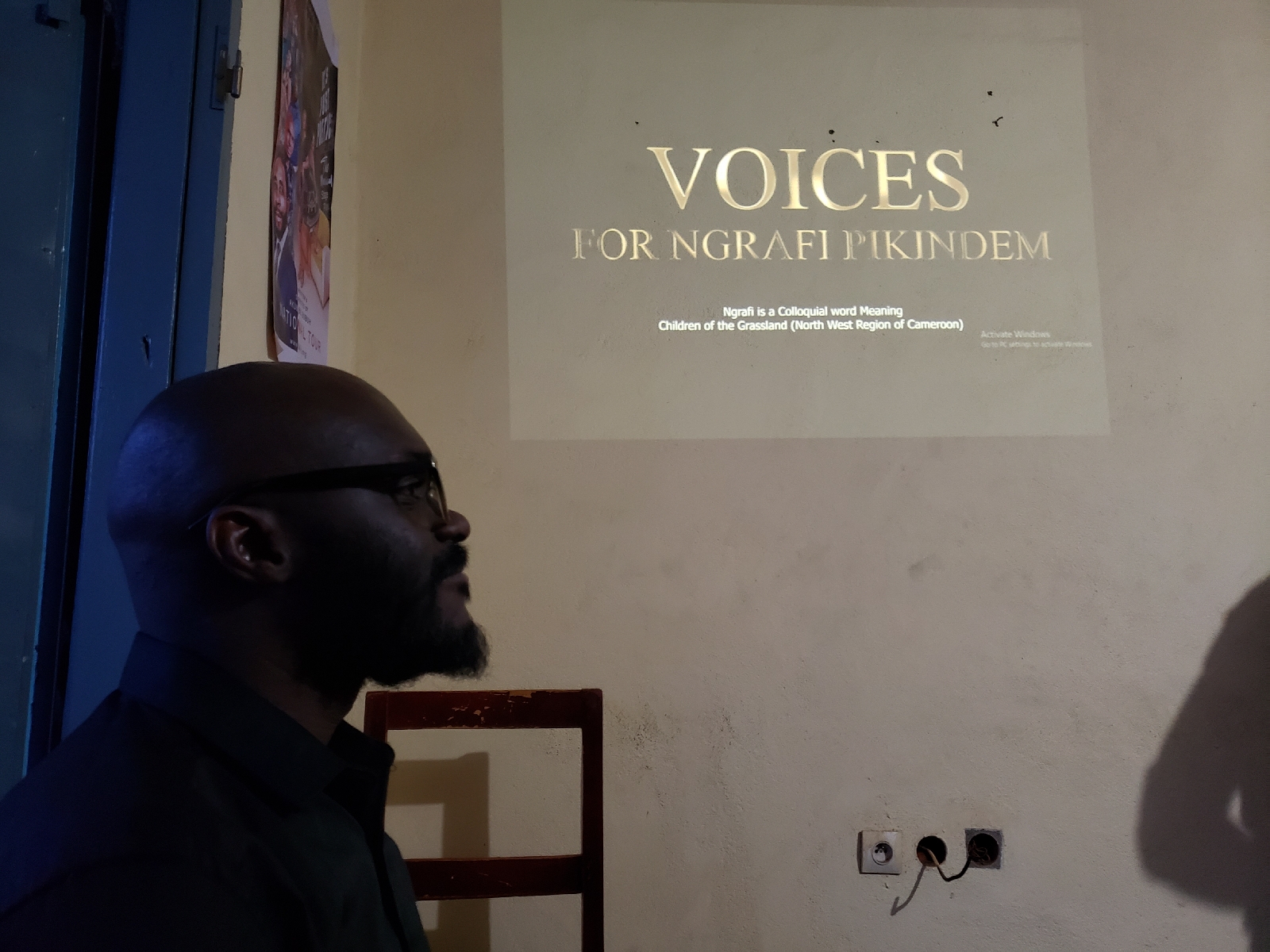By Bakah Derick
A documentary film by Bamenda based nonsectarian group La Liberte Arts Group (LALIG) has been rated high by academics, film makers and journalists during the pre-screening event in Bamenda. The documentary tentatively titled ‘Voices for Grafi Pikindem’ pre-screened on Wednesday 24 May 2023 according to the Director Akumbu Jones was a fulfilment of a longtime dream in contributing to doing things right in Cameroon’s film making industry.
“This has been a longtime dream for me. I studied arts criticism and for a very longtime I see most of our films going for festivals but they don’t win the coveted positions. For the last 25years, all Cameroonian films that have gone out have won best actress and none has won best screenplay, best directing, and these are the most coveted part of a film. When I asked why, I figured out that the problem is , we don’t allow ourselves to be criticized. Like elsewhere in Africa like Nigeria, Senegal, South Africa, they have a strong culture of allowing criticism to take place. I think we have to start doing the same. Including test screening, this is part of film development.” Akumbu Jones said
The documentary film which captures the story of a girl, her family and others who have lived in the epicenter of the ongoing armed conflict in the North West Region is a result of a project named ‘pealing the onion of Pain.’ According to the Director, The project brings together research and theatre as a way of providing mental healing to many young people who have lived different traumatic experiences of the armed conflict.
“We are living within the Anglophone crisis which has morphed into an armed conflict. One of the things we noticed is that, young people don’t have a safe space to be able to express how they feel and what they hope that will happen and how to rectify the situation. So we were looking at the means where we good give young people the opportunity, the platform where they could be able to air out their feelings about what is happening. At one point you have the feeling that young people have been left out within the community. One of the ways of seeking a solution is getting the people healed. This project was came from the desire to give young people a space for them to heal and we believe that when people talk they find solutions.” Akumbu explained
After watching the breathtaking production, the invited critics appreciated the cast and crew for the work done. They received clarification on some of the image choices and style, as well as the background of the work.
“This film is getting to a field that is rarely explored; that is using arts based therapy to help victims of traumatic situations especially like the crisis going on in the North West and South West Region. Conventional approaches have not effective because of lack of conventional structures like psychosocial centers and others but if artist eventually embrace this methodology to adopt therapeutic theatre and forum theatre approaches to get people together and create a safe space for them to air out their stress, I think we will greatly improve the state of mental health of people in conflict stricken areas.” Dr Alasambom, Lecturer of visual and performing arts said
LALIG is hoping that policy makers will watch the film and make informed decisions towards ending the conflict because many young people are living with different traumatic experiences and deserved to the healed. Sarifa Sale is a psychologist who has been working in the project. She considers the film as a good and timely initiative that can play an important role in the healing process for many including the interviewees and other victims of the armed conflict.
“If we look at those who were interviewed in the film, you will notice that they now share their story with some ease. As you know, telling your story is part of healing. Seeing people burst into serious emotions during the film shows that they healing process is going on because that was not the case before. I think it is helping the participants and others with similar experiences to understand that the problem is ongoing and they are part of it and sharing their stories brings hope. This gives hope that there is a better future them and that things are going to get better.” Sarifa Sale noted
The director and team have expressed gratitude to Oxford University and the British High Commission in Cameroon for accompanying them realize the film. While promising to make corrections to the film following the criticism made during the pre-screening, Akumbu Jones has promised to make the film available to major stakeholders who have the competences to ensure peace returns to the regions as part of his institution’s strategic advocacy plan to build a peaceful society.






